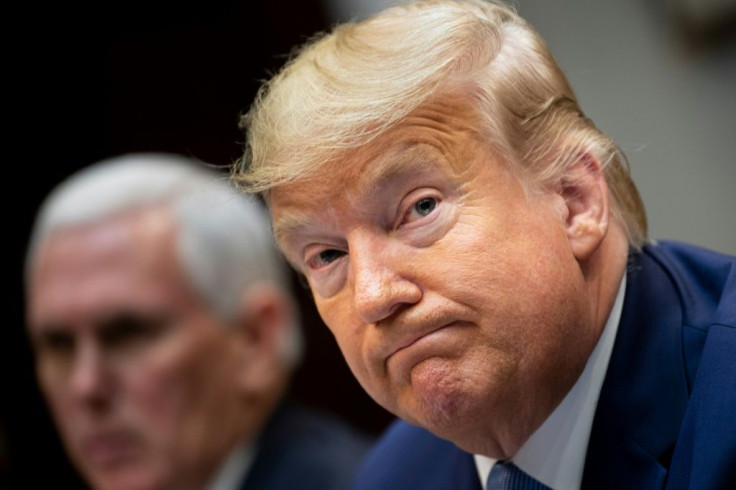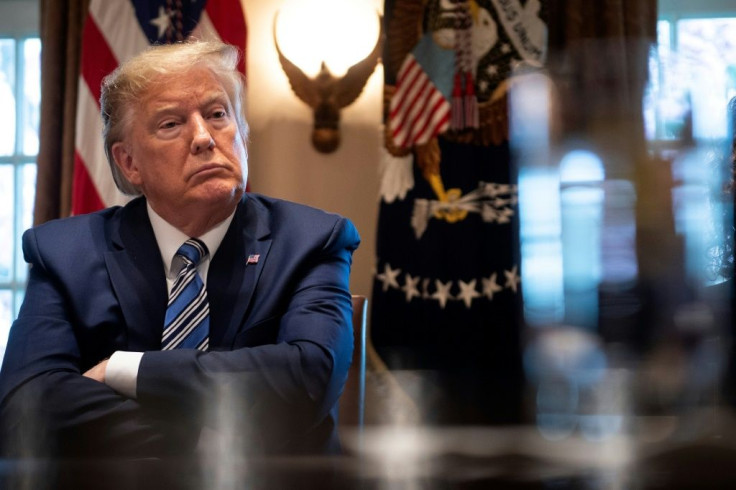To Save Economy, Trump May Push To End Coronavirus 'Social Distancing'

KEY POINTS
- Behind closed doors, Trump says he wants Americans working before April
- Trump suggested ending 'social distancing' after high unemployment numbers
- Trump realizes his reelection campaign hinges on saving the economy
Deeply concerned about the impact the coronavirus pandemic is having on the nation’s economy, President Donald Trump is exploring ending recommendations for workers to stay home. As unemployment numbers skyrocket and Wall Street crashes, the president is undoubtedly aware that his second term may be hanging in the balance.
According to people familiar with discussions taking place in the White House, the president hopes to have most Americans back to work before the end of March. According to Bloomberg, Trump began floating this idea last Thursday, after announcing recommendations on Monday for Americans to practice “social distancing,” the act of keeping physical distance between individuals, for at least 15 days.
It is hardly a secret that Trump is fretting about the ailing economy, having spent the latter part of last year touting low unemployment numbers and gains on Wall Street. Now, however, thanks to the coronavirus crisis, both figures aren’t looking good for the president.
Major losses on the stock market has seen the largest single-day dips since the 2008 recession, wiping out most of the gains made since Trump entered the White House.
A poll late last week found that nearly three-quarters of Americans have had their lives impacted by the pandemic, particularly so when it comes to work. While some are practicing social distancing by working from home, many have seen their hours either cut or have lost their jobs altogether. Unemployment claims spiked to 281,000 last week with estimates suggesting that that number could rise above 2 million this week.
In recent weeks Trump has faced increased criticism over his handling of the coronavirus crisis. Last month, the president repeatedly asserted that the country was prepared for the disease, downplaying its seriousness. Since then, cities and states have taken it upon themselves to take measures – in some states, like New York, going so far as to shutter all non-essential businesses – while Trump had refrained from restricting cross-border access and advising social distancing until last week.
Since he began his campaign for president in 2016, Trump has portrayed himself as a skilled businessman who would bring his talents to the White House and create a booming economy. With the coronavirus pandemic taking an ax to businesses and Americans’ wallets, Trump is well aware that his second term likely rests heavily on his ability to save the nosediving economy.
Both Congress and the White House have stated that they hope to reinvigorate the economy by sending Americans checks of at least $1,000. That plan is running into some difficulties though, as lawmakers struggle to come to an agreement on who would qualify for the relief funds and how much would be disbursed.

© Copyright IBTimes 2025. All rights reserved.






















